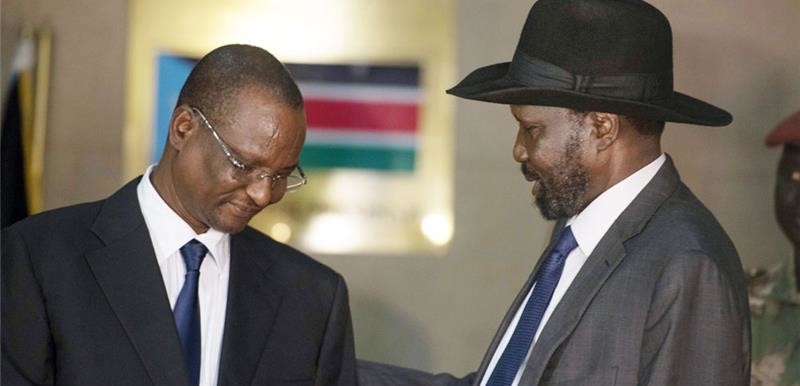A national minister in the unity government in South Sudan has stressed that federalism, which is one of the systems of governance included in the peace agreement, should not be interpreted to mean division of the people or ‘Kokora’, a word which different ethnic groups tend to interpret differently.
Local linguists in the Bari language loosely translate Kokora to mean division of something into different parts. Another connotation of the word is to share something.
Yet different groups in South Sudan attach different meanings to the word due to the different ways in which the events of the so-called ‘Kokora’ period in the early 1980s were experienced.
Richard K. Mulla, minister of federal affairs while speaking at the official function inaugurating the office allocated to the ministry of federal affairs argued that federalism is not ‘Kokora’, and that the only way through which peace could be achieved is through national dialogues among the rival communities in South Sudan.
“As you know, a federal system of governance has combining ideology of self-rule and shared rule. In this case, I want to say federalism is not Kokora,” he said. Mulla reiterated that his ministry will be initiating the process of establishing a federal system of governance which he says is a popular demand of the people and is recognized in the agreement.
Mulla was speaking at a news conference in preparation for holding two days workshop meant to be an occasion at which the officials would come out with ideas to outline plans of the ministry.
South Sudan’s current government is nominally ‘decentralized’ rather than federal. The national government in Juba has wide-ranging powers over state and even local governments. All the 28 state governors, for example, are appointees of the president and were not elected.
However, the peace agreement called for the creation of a ministry of federal affairs.
“It is believed that our problems, inter conflicts, tribal, religious, linguistic, cultural difference will be resolved by a federal system of the governance,” Mulla stressed.
He noted that the period for the new constitution drafting committee was given 18 months and so far, they are late in implementing the peace agreement, which he claims will be based on federal principles in order to lay a foundation for a federal system of governance in South Sudan.
“We are not involved in security but we can at the same time chart for security by getting involved in the national dialogue. There is now an arrangement to have a national dialogue for all communities in South Sudan to come together and discuss and sincerely the problems that affects them, the problem that divide them and problems that cause conflict,” he added.
He continued that the ministry of federal affairs has a role in national dialogue and in that way, if there is dialogue, there would be understanding and there would be stability and security.
The two day workshop was planned to be attended by President Salva Kiir, first vice president Taban Deng, ministers among other diplomatic missions according to the federal affairs minister.
The function, however, was opened by the vice president James Wani Igga in absence of the president and the first vice president. It is not clear why Kiir and Taban skipped the event.
File photo: Salva Kiir and Taban Deng




